The author’s parents, Brendan and Glendah Halliday, during Brendan’s days with Springvale in the old Federal League.
Football, in unobtrusive ways, gives space to individuality. People who often think differently, have divergent interests and come from dissimilar backgrounds with different beliefs, find something of what they are looking for.
At 17, my dad Brendan Halliday played at the VFA club Oakleigh, the kind of football where people smoked at half-time and you could hear an on-field collision from a few yards back.
I have seen the black-and-white footage of the 1973 VFA grand final he played in. In some ways, it seems to hold a certain realness, of simpler times, where you could get up close, the game stripped of some of today’s gloss.
People exchanged hope at the football on the weekends. That for a few hours, they might be a winner, or they might be a loser but they found someone to console them, someone to understand what it is to fail. It was a shared experience.
In other areas of life, it is not always possible to have the opportunity to connect and unravel what went wrong, or what was funny about it or what was inspiring about losing by 100 points in fog and wind that flicked up your jumper, sending cold droplets of rain racing down your mud-sodden back. There’s no shortage or humour in football. There’s seriousness and relief, too. There’s also no shortage of art.
Martin Flanagan has long seen the art in football. One of his local football heroes when he was a boy was Graeme “Gypsy” Lee. Martin wrote that his brother has said to him: “You’ve got to stop writing about ‘Gypsy’.”
But that’s what football does to people. It captures the child in you, pushes aside the real worries of life for a while and replaces it with possibilities and a rich, often unspoken, connectedness as you share something that does not ask much of you, but compels you to give, clap, roar, be emotional, be connected, show up, give it your best shot and be seen.
Dad, who at 22 played in Springvale Football Club’s 1977 premiership team in the old Federal League, always told me to have soft hands, guiding the ball in when we tossed the netball around in the back garden as a football from my brothers came flying in overhead.

Springvale’s 1977 premiership team, which famously upset the heavily-favoured Oakleigh Districts to win the grand final.
He’d extend an arm in a relaxed fashion, guiding the football in. Dad had a natural feel for football and although gentle, he was tough and stood his ground on and off the field. In my life since, I have always seen softness as a strength in a hard world, that we need balance, light and shade, moments of gentleness and grace, moments to be steady, strong like a tree.
When Dad first got sick with Motor Neurone Disease, I took it upon myself to resolutely believe that he would stand his ground, roots firmly woven into the soil, and he would be the one to prevail.
After a short and fatal battle, we attended his football reunion without him, still in shock, with invisible wounds so deep they could swallow me up. Four people told me that Dad was quiet, reserved, a thinker, different.
They said he always had a satchel, or some side bag. Nobody ever knew what was in it. They had no idea how important it was for me to hear their memories and to hear Dad spoken about. That they remembered and they knew him as I had known him was fortifying. They knew he was a kind, decent, considerate man, and they had knowledge to understand that he had more talent than he would have ever let be known.
Years later, these men still held strong memories of that time, of the games, of being together. There were things they knew about each other, and things that they had no idea about, but the gentleness and sturdiness was indefatigable.
The men at the football club didn’t know that Dad had travelled the world, camping out in the Shetlands, falling ill at the Taj Mahal in India, hitchhiking, listening to Celtic music and writing letters to my mother, but they knew he could be powerful on the field, they knew he could be artful and they knew he was gentle, deeply considerate, physically strong and erudite. That was all they needed to know.
PLEASE HELP US CONTINUE TO THRIVE BY BECOMING AN OFFICIAL FOOTYOLOGY PATRON. JUST CLICK THIS LINK.
In the early 1990s, my Dad became the president of Beechworth Football Club. People later told me that he had funded player wages to save the club, funds which were later paid back by those grateful to have seen the club prevail, knowing its importance in a small regional town.
There is something to be said about all that goes unsaid at football clubs. The small things people do in the background to keep the cogs turning, such as getting into the car on a bitter winter night, your breath giving shape to the dark, your cold aching hands fumbling to hang up a sign reading “Home game this weekend!” on the main road. I saw my Dad do that often. Sometimes accompanying him, I tried to hang on to the other side of the sign as I shivered against the biting winter air.
I remember going up the secret ladder to the timekeepers’ box during home games as a young girl. I did not go near the rooms, but I knew how to slip in a side door and climb up to find my Dad, and someone from the other club huddled in this little nook, keeping score and the time and pressing the siren. This was a sometimes job, a filling in, of which Dad did a lot.
Whenever I asked questions or told stories, it was never, ever an imposition, even if Dad missed a point or goal, the opposition timekeeper would keep an honest score. There was an understanding that at the end of the day, it was just a game. Once the game was done, there was celebration and commiseration, and then you moved on.
It was the community and connection around the game, the kindness that surrounds the football, that holds greater significance.
I have memories of my Dad in inclement weather, carefully walking around the perimeter of the oval, carrying a little plastic white cup of coffee for my Mum. The walk was a slow one, with lots of intervals of stopping and watching, before putting the head down to walk on. The coffee was probably lukewarm upon arrival, but the kindness was always more than enough to warm you up.
In the late 1990s, I have memories of the club jumpers, a boost to team congeniality and morale. Black and red, fluffy fleece jumpers. Dad used to wear one and whenever I found him, he would give me coins out of his pockets to get hot chips and lollies. I was always proud to stand beside him, safe and happy, but I was also aware of the ferocity on the sidelines. A serious undercurrent.
There is a feeling on game day. An energy.
I remember the collective sense of camaraderie watching someone do well. The hushed discussions on Saturday morning before a game. My brothers running out together. The collective gasp when someone was hit high. The thundering of hands after a goal. The quiet pride after one of my brothers had taken a mark and guided the ball through for a goal.
Then the seriousness would lift, in moments when opponents said the unexpected, when in the aftermath you saw the funny side of that slip, or the coach sternly telling his players to have a quiet night, to begin their recovery, no drinking, only for someone to whisper in his ear that a club fundraiser was planned that night, his tune quickly changing, telling the group they all needed to turn up, have a good night and a few drinks for the club.
I recall laughing, buckling over laughing on the sidelines, watching a very theatrical umpire. It was like a dance. A swing of the hips, a skip backwards to watch the ball, a twirl of the flags. Even as he stepped out, in the fog, as sleet came in sideways, he was ready for a show. A figure ready for the stage.
The game went on with fun, colour, creativity, craftsmanship and a fair amount of hardiness. All of those things you need to sustain you through the ups and downs of life. Watching and laughing with Dad, being with Dad, was simply one of the biggest joys of my life.
Togetherness. Affection. Permission to be expressive or hang at the back but be drawn into the huddle with nobody asking much of you, but reminding you if you’re willing to show up, there will be room for you. You belong, and joy awaits you, despite it all.
*You can read more of Sinead Halliday’s work at HOMEGROWNTALES.COM



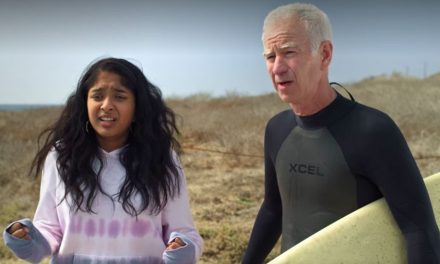
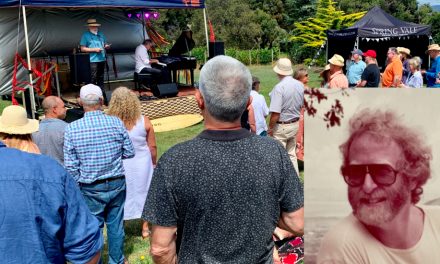
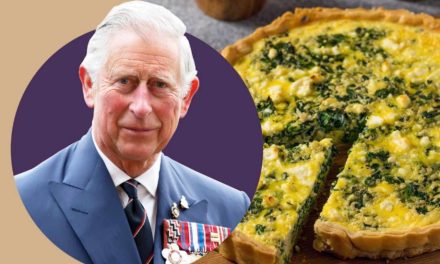

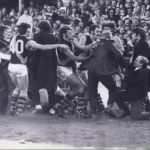


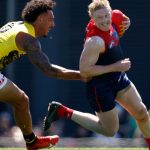

Sinead,
I’ve come to this late, but it’s an exquisite read. While your dad is representative of many indispensable football people, you also convey his unique characteristics. My heart goes out to you for your loss.
What a wonderful read. That’s the footy i remember. That’s the footy i long to hear about
Loved the story. Community is terribly important, and I reckon we’ve really come to realize just how much during the recent pandemic. Some people stood tall, and others not so much.
I found that those at the very top of the food chain were the biggest letdown, but judging the character of the marketing man, I wasn’t surprised.
But hearing and reading about how ordinary people can make a big difference to others lived experience.
Helping someone out is often easier than you think.
It certainly does much good.
The essence of life and grief. Fabulous writing, and memories, Sinead.